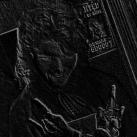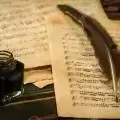Leaderboard
Popular Content
Showing content with the highest reputation on 02/11/2023 in all areas
-
Hello there, 2 years ago I composed the first movement of a piano concerto in C minor. It was the longest and most developed composition I ever made. It took me almost 2 years to find inspiration again but i've finally made it. Therefore, here is the 2nd movement of this concerto. Took me 4 months to compose it. What do you think of it ? Any critic ? Piano_concerto_in_C_minor_-_II_Adagio_-_Camille_Fricot.pdf1 point
-
Over half a year ago I posted the introduction of my second symphony that I've been working on since mid-2021 on this forum. I got some pretty good feedback, so what I'm sharing here is the changes I've made since then plus new stuff. I will also explain the structure of the whole piece. It is in one movement. The structure is kind of two tragic sonatas intertwined. I have an introduction, exposition 1, development 1, exposition 2, development 2, recapitulation of all themes, coda. And if any of you don't know what tragic sonata form is, it's just sonata form but the order of the themes in the recapitulation is reversed. So, the recapitulation of mine will be theme 4, 2, 3, and then one. I have gotten the introduction, first exposition, and first development to a point I'm comfortable sharing. btw I will not be putting this into musesounds until I'm done with the whole piece, since it takes a long time to do that. I'm especially wanting to improve the orchestration, counterpoint, and (sorry if this is vague) subtlety. Feedback is greatly appreciated and don't be afraid to be critical, it will most likely be of help.1 point
-
Hello, je vous présente ma dernière composition, achevée hier... (février 2023). C'est écrit sur deux strophes du poème "nocturne" de Stuart Merill. L'effectif est une clarinette soliste, une harpe, un quatuor à cordes, et un petit choeur de chambre, le tout pour accompagner un baryton solo (je chante, car je m'avais sous la main et c'était plus pratique que de faire venir quelqu'un d'autre dans mon petit bureau home studio)... bonne écoute ! J'ai hâte de lire vos conseils. EDIT Ohhh Sorry ! In English ! I present to you my last composition, completed yesterday... (February 2023). It is written on two stanzas of Stuart Merill's poem "nocturne". I is written for a solo clarinet, a harp, a string quartet, and a small chamber choir, all to surround a solo baritone (I sing, because I had myself at hand and it was more convenient than bringing someone else to my small home studio office)... Good listening! I can't wait to read your advice. (le visuel est mon manuscrit photographié en macro. J'utilise ce genre de visuel pour mes dernières compositions).1 point
-
Hi, as I announced some days ago, I was working on how to frame my ideas and research about this topic. Finally, I started. new blog, which will be dedicated to musical rhetorics. It will be in English and Spanish and it will have some introductory entries, but the main part will be the figures. I will explain them and write two examples of each in different styles. Nw and then, I'll write a longer piece putting some of the resources together. So, if you want to take a look and you have suggestions or whatever.... Blog index: https://mrhetoric.blogspot.com/2023/02/indice-index.html1 point
-
Good afternoon everyone! I thought I would share a short piece I wrote a couple of years back: Brass Quintet No. 1. At the time I wanted to take a break from large scale pieces and just write something fun. I also have never spent much time on chamber music, so it was fun to do something different. The piece is in two sections: a fanfare-like section, and a staccato 6/8 section. A few questions for feedback: What effect does the music have on you? Does it conjure an image? Or a feeling? What was your favorite part? Least favorite part? Do you have any comments or critiques on technique, e.g. harmony, melody, counterpoint, voice-leading, etc.? How about the overall form? Is it effective? Do you have any comments on the quality of the performance in the audio file? I want this to be as good of a representation as possible, so feel free to point out any parts that sound unrealistic to you. How well does this work as a brass quintet? Is there another ensemble it may be fitting for? I have included a score, any feedback on its presentation? Are there any composers this reminds you of that I may enjoy listening to? Sound libraries: all are Spitfire Symphonic Brass Thanks for listening, I hope you enjoy!1 point
-
Thanks Henry! I'm glad you enjoyed it, you always give good feedback. You mean the very ending? It's actually D minor, with an open D5 chord at the end. I suppose I was just thinking about have to distinct, sharply contrasting sections, and contrasting the harmony was simply another variable I could contrast (in addition to time signature, style, etc.) Ah yes you are right, sometimes those staccato patches are a little too short and not very resonant. Good ideas, perhaps I will revise this one day and expand it as you both describe. Interesting connections, and to two of my favorites, thank you! Thanks buddy, you're far too kind! I appreciate the thorough feedback you always give.1 point
-
Thanks man, I'm glad you enjoyed it! Yes I agree with you on the ending, it is a little abrupt. I think what I might do in the future is take @Thatguy v2.0's advice and expand this into a collection of several short movements. That way what this movement lack's in finality would be compensated with better resolution in the other movements. Thanks for listening! Oh no I've been found out! At least you know where to go if you ever need fiber supplements... Thanks for listening, I'm glad you enjoyed it. I would like to spend more time writing shorter pieces like this, they are fun and good practice for coming up with music quickly.1 point
-
Thank you very much for listening and commenting. If you could not hear it, i sadly did not succeed. Williams subjejct is the first. The opoening in the alto is just free counterpoint. The entry i 28 is Jonas-subject. Semiquaver beat parallels is done all over the baroque era, should be avoived, but it has something to do with the subject and the figures in this case. 🙂 Im glad you noticed fsharp minor section, that is where the drama between the brothers happen 🙂 Thank you very much for listening and commenting. I had marked inn the names for the subject, but something happend when i editiet the score. I use organ sounds because the sound better. Not much scorewritten dymanics in baroque, not in my music either. Up to the performer or conductor. The lines of the music talk for themself 🙂1 point
-
I will try to be brief. • Part 1: a bit repetitive on a first listen, not on a second. Tremolos will surely sound much better when you get this to musesounds so no criticism on that. • Parts 2-4: I don't know if this is too much for the first exposition but maybe, for the subtlety field, I may add "echoes" of the leading voices using other instruments. The harp stops abruptly and though it does it in a weak beat I think its provisional silence could be achieved more smoothly and that this would improve the score. Just my opinion of course. • Part 5: the piece starts to gain some momentum, and the transition to the next part is very smooth. No criticism here, just enjoying the material and letting you know :). • Part 6: very well written, simple and convincing melodic lines. • Part 7: no criticism here either! The piece keeps improving as it goes. • Part 8: ok, now we are talking. I was waiting for something like this. I'm not going to say this was over-prepared, but it's true the piece took its time to reach its first peak. • Part 9: very nice use of the glockenspiel, the "main" theme keeps going very smoothly throughout the different timbres involved in this and prior parts. • Part 10: Another suggestion: some harp in the M315 —when you go back to less strong dynamics— could fit very well there. Very nice cadenza by the way! It's nicely written and well-placed in my opinion. Not the best fit, but definitely not just a show-off placed randomly in the middle of the piece. • Parts 11 & 12: Nothing to criticize nor to point out here. This never gets boring, despite these parts are a bit sober. That possibly means we are approaching another peak! • Part 13, 14 & 15: Oh yeah. We are still on page 34 and this actually seems to be the climax. I wonder what's gonna happen next. Oh right, the cadenza! • Parts 16, 17 & 18: The fact you have the piece very well-structured really pays off, this is getting better and better. No criticism here either, perhaps if I had time to listen to the piece more than 2 times I would have useful feedback here too. • Parts 19 and 20: At first I was not really convinced but the final trill leading to the bombastic main theme (part 21) dissipated part of my doubts. • Part 21: My favourite, no doubts. Very well achieved, though the preparation for it this time —despite of the preceding trill— didn't convince me too much. • Parts 22 & 23: I think part 21 lasted very little time. Parts 22 and 23 were also nice, but I would have preferred a less abrupt comeback to humbler intensities. Since this is not finished I am not going to comment anything about it. Guess half of this isn't really useful but it's not like this piece is full of obvious mistakes, scoring errors, or something like that. For now it's a solid piece cemented into a small number of themes that are successfully conjoined. Congratulations, dude! I do look forward to listen to it as soon as it is finished! Kind regards, Daniel–Ømicrón.1 point
-
The Ballade in E-flat minor was written in 2021. Though it is written for solo piano, I had intended to write it for piano and orchestra, and may make a version of it for this ensemble in the future. The piece is about 8 minutes long. I hope you all enjoy it 🙂1 point
-
Hello @Theodore Servin, It's really the first time I've seen you post here! I always like your late romantic style and live performance of your own pieces. Your style is really flowing and very charming! I actually notice your music first in youtube, and thanks to your videos I am able to discover this great forum! Thank you for that. Will you have some pieces recently completed and share them here?🤔 I will be very excited if you do! Thanks for sharing! Henry1 point
-
Thank you for your kind words! I'm glad you liked the piece and the performance! Regarding the meter(s) of the piece, this piece (along with my Fantasy-Variations Op. 12) was one of my first to use frequently-changing time signatures, as up till then I had also been pretty strict about meteric "sameness". No, I haven't made any attempts to orchestrate the Ballade yet. I might still try sometime, but it's not something I've been planning on doing just yet. However, I do think it would still work well as a short concerto... Hope you're doing well! It's been quite a long while since I've commented here!1 point
-
I cannot tell the reason why for sure, as the piece is a bit old already, but in some recent pieces I have dared to put even harmonic augmented 8th intervals so this choice would not surprise me. The simplest and possibly most likely reason would be that I liked it at that time so I kept it. The score itself is a bit of a mess even in the piano part. I am not sure if it's actually playable, it's one of the very few pieces which I composed without that in mind (hence I didn't publish it anywhere else), plus I was not certainly a connoisseur (nor I am now) of string instruments at all. Thank you for your words, Peter. Despite I already have some of these engraving mistakes and non-idiomatic writing in mind, comments like yours always make me to look back at those and some new considerations I hadn't made up to now. Kind regards!1 point
-
I've so far listened to Reached Alert and what a superb piece it is too. If only you gave us a score I could point out parts of special interest. Very well composed, developed, divided into contiguous contrasting sections: some fractious almost 'angry' outbursts, other parts that are simply beautiful; lyrical - the solo 'cello. A grand climax to conclude. The harmony is always engaging and I guess in your earlier days you gave a lot of time to score study because the orchestration is as professional as it gets - which I'll say in the absence of a score but the balance always seems OK. I particularly liked your handling of the brass. I'll come back to listen to Lucid REM later this evening (if I can - there's a lot of interruptions going on around here right now)!1 point
-
very very very very very very very very very very very very very very very very very very very very very very very very very very very what very very very very very very very VERY VERY ...cool music 😄 I've listened to these pieces a few times now. I REALLY wish you had scores available for us to dissect and follow along, but I'm guessing you use a DAW for input and they don't make the most reliable scores. Could you possibly delve into your compositional style and tendencies? Sure, I'm using my ear to kind of figure out your developmental procedure, but I'm curious on your take. For one, I LOVE how you use the orchestra. I love the modern take on prioritizing color and scarcity over bombastic romantic-era textures. Your two pieces never fail to deliver in this regard, and they delight and flourish throughout their entirety. I'm reminded of the large swaths of color and texture of the impressionistic composers, and although I don't hear too much relation in language, perhaps it's an influence in style and content? I will say, that when restricted to an ensemble, there's a sort of cohesion that takes effect in the amount of color available. A certain logic. Just be wary of your writing in the DAW, as colors can stream in and out, but it's nice when they make sense. For instance, if one instrument has a melodic line, but then isn't used ever again. Not saying your music does this, but it's just a trap I sometimes hear when listening to a "cinematic orchestral experience", like these pieces. I appreciate you offering us two well written pieces in this post as your introduction (and btw, welcome!!!), but keep in mind if feedback to grow as a composer is your goal, your music will be more digestible if separated with their own posts. And if you have more pieces composed that you're willing to share, space them out. A dump of several pieces at once tends to go unnoticed by most (except my main man @Henry Ng Tsz Kiu, you can count on him), and with the quality of your work, I would hate that each thoughtful presentation of your piece doesn't receive the attention it deserves. Overall, outstanding display of your compositional prowess, and again, welcome to the community! I'm glad you made the most of your Covid experience and turned back to composing, as at least I am very grateful to hear your style and talent resurface into wonderful works of art. You seem like you really know your stuff, especially in production value of your music. I strongly encourage you to poke around in our forums and offer any advice you deem fit; many members here could really learn a lot from your insight into composition and most would welcome any criticism you might share. Thanks for sharing, I look forward to hearing more of your works you grace here in the future!1 point
-
Theodore, Wow! This piece is riveting, and I can hear how deeply felt the performance is. I'm so taken with the impressionistic harmonies. My favorite moment was around 3:18. Your dynamic transitions between "stormy" passages and more subdued moments seem effortless as well as your sense of meter -- speaking as someone who feels constricted by metric 'sameness' lately. 😄 Have you made any moves toward orchestrating this? I have some experience and practice with writing for large, Romantic-style orchestra, and from what I've seen you've mostly written chamber or solo piano works, so if you're still considering this project and would ever like some advice, I would be happy to offer my best help. In any case, it would be lovely to hear another arrangement/rendition of this very strong material. Thank you for sharing!1 point
-
1 point
-
You know I always don't like my old works, at least unappreciative to them. I always find in them things bad and so many aspects to improve. It's not that I love my current work more but at least I am more confident in them. But those are really necessary evils. Knowing that our works have rooms to improve is already an improvement of judgement and taste. And I haven't listened to that yet! You won't be sure whether I love it or not! I am usually appreciative to people's works except mine. If that seems really bad I can at least have something constructive to say! One way to improve is to listen to other composers' works here. You will find different approaches and styles, even though they may be utterly different from yours. You may give suggestions to others and receive feedback from others. This kind of mutual review and encouragement will definitely help you grow as a composer! Henry1 point












